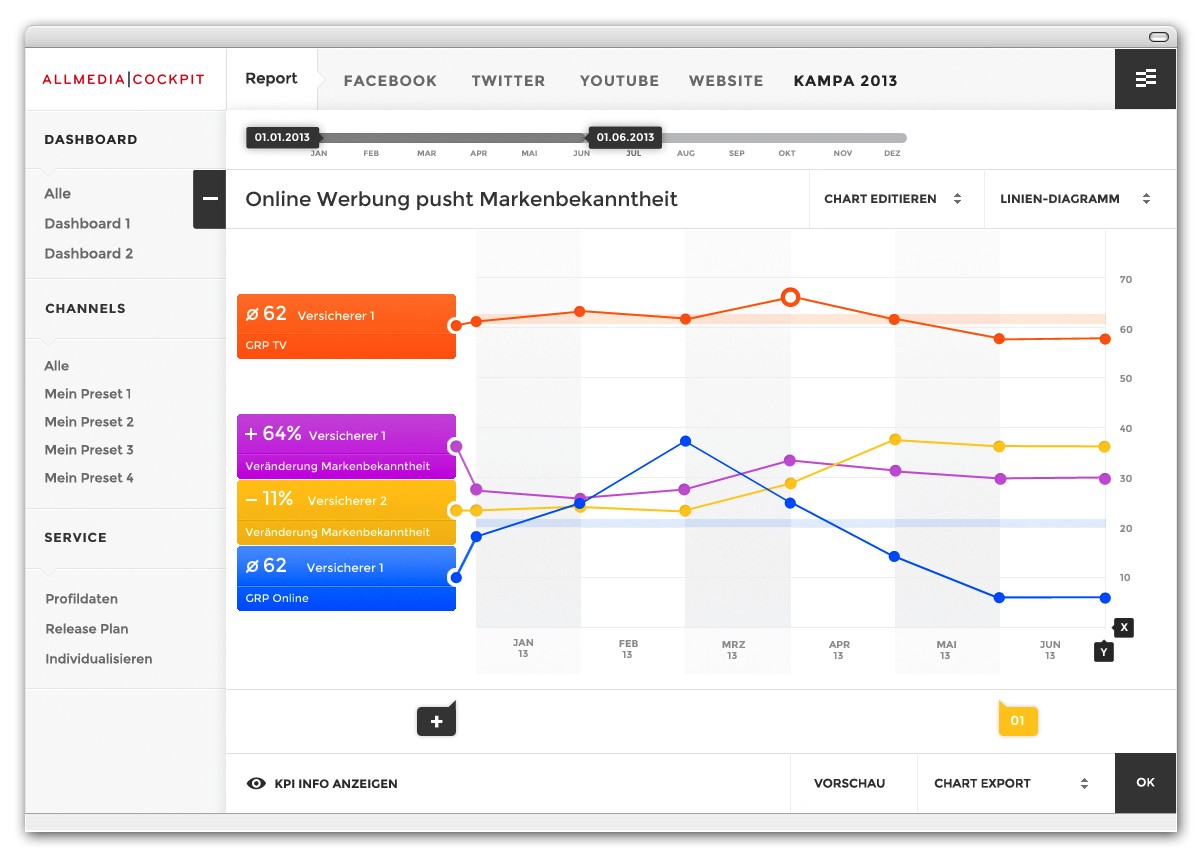
Blog Post
Web Analytics

Nadine
Wolff
published on:
11.09.2013
Big Data, Small Data, or Smart Data? What kind of data should you collect and analyze?
Table of Contents
Google and Facebook collect vast amounts of data and use it strategically for monetization. Providers of SEO software boast about seemingly incredible amounts of data and impressive analyses. The interest in "Big Data" remains unbroken. But is this always the right path? Where are the risks, and where might the large statistical data not yield the desired results?
What does "Big Data" mean?
One could simply refer to "Big Data" as "large amounts of data." Wikipedia cites this from a BITKOM guide:
"Big Data refers to the use of large amounts of data from diverse sources processed at high speed to generate economic benefit."
According to this definition, it is not about the sheer quantity but about the purpose, the economic benefit, that is meant to be fulfilled through data collection and processing.
The data is calculated from user behavior, from a variety of values and sources such as social media, rankings, traffic numbers, and click prices. In online marketing, this usually means relying on one of the many paid tools that analyze vast amounts of data. The values provided are mathematically calculated, statistical sizes from which action recommendations are often derived. To put it provocatively: It is about mass, about the user as a value, not about the individual.
Is "Big Data" really helpful?
As the paragraph above suggests: In the world of "Big Data," it's not about personal experiences, not about direct dialogue with customers. It is about machine-calculated values. Algorithms are used to show similarities and distinguishing features between users or user groups. It is about probabilities, less about customers as individuals. The interest of the advertiser or website operator is the focus, not the customer's interest. Retargeting is an example that relies on analyzing large amounts of data but is not well-received by many users and therefore needs to be used with great sensitivity.
Big Data requires special tools, such as those offered by MOZ and Searchmetrics. The monthly costs for access are manageable, while Google tools are even available for free or upon setting up an AdWords account. The danger lies more in not being able to draw the right or any helpful conclusions from the collected data. The flood of data is comparable to the flood of information: Much does not always help much, but it often simply hinders, costs time, and thus money.
Whether the Big Data approach is good or bad fundamentally depends on whether these data are used sensibly and purposefully.
Data-driven marketing should not mean collecting a mass of data for its own sake. Instead, it should be about using this data to answer specific questions and derive meaningful actions. Dr. Pete puts it succinctly in an interview:
"Being data-driven isn’t about collecting a mountain of data to hide your problems with – it’s about asking honest questions and finding the right numbers to answer those questions."
So what might be such questions and problems that can be answered by "Big Data"? Here are a few practical examples:
Increase or loss of visibility:
Instead of perhaps a hundred competitive keywords, several hundred, depending on the industry, even several thousand relevant keywords are considered. If the ranking changes for a large number of keywords, this shows how the visibility of a domain is improving or deteriorating. "Big Data" can thus be used as a warning signal and a starting point for further analyses.
Competitive monitoring:
A large number of keywords can be used to identify new competitors more quickly than if only a handful of the most traffic-strong keywords are examined. Maybe the new competitor is using related keywords or synonyms that are targeting the same audience. Especially for companies that offer many products, a fairly large number of keywords can be relevant here, which can hardly be manually monitored for new or strengthening competitors. Here, too, such analyses can be an important signal, even a kind of early warning system for new competitors in one's own market segment.
Keyword research:
It's not only important to identify the keywords for which one's own website or shop ranks in search results but also to recognize potentials: Which keywords are worth optimizing for? Are there seasonal or regional differences? Where is the competition particularly high, and where is increasing interest noted? All these questions are answered by statistical data, as found in Google tools like the Keyword Planner (the free keyword tool, unfortunately for many marketers, is no longer available) or Google Trends.
Success control:
How much traffic did a campaign deliver? Which marketing channels brought the most sales both proportionally and in terms of this traffic? And how should these channels be evaluated when calculating ROI? What is a click worth, what is a top position in unpaid results worth? With Big Data, it is possible and indeed worthwhile to carry out such analyses—always with the goal of answering specific questions. For example, the question of how the marketing budget should be distributed.
So, there are many questions that large data volumes can answer. The challenge lies partly in asking the right questions and finding answers, as well as in recognizing which data and answers are truly helpful for which decision maker or employee. In larger companies, this may mean that editors need completely different figures than the social media manager, the sales representative, or the CEO.
In this context, tool solutions with customizable dashboards become interesting, showing users exactly the data that is relevant to them. An example of such a tool is the new Allmedia Cockpit by .companion with its cross-channel evaluations, which allow companies very individual linkages and calculations of data beyond standard values. Michael Heine from .companion: "With the Allmedia Cockpit, each user has the opportunity to tailor the tool to their specific requirements. We are not only a tool but also a service. Therefore, standard KPIs can always be expanded with individual KPIs for all or individual users, which the tool calculates. For example, this way, CpX can be calculated, or the communication effectiveness of individual measures, as a preliminary stage for ROI calculations, which are also possible."

“Big Data”? “Small Data”? “Smart Data”!
This year, it's not just about "Big Data," but marketers, even major news sites, are discussing the advantages of "Small Data" over large data collections.
Basically, it should be noted: Larger data volumes do not necessarily mean a proportionally higher information content. The crucial point is to have just the data that helps solve a specific problem or answer a specific question. Whether it is "Big Data" or "Small Data" is irrelevant. In simple terms: It is about "Smart Data," regardless of scale, data that enables meaningful use, precisely the right data to answer relevant questions.
The "small data" can certainly suffice: The data created in direct dialogue with customers, left by the customer on the website or in the online shop, entered by themselves. Initially, without generalizing, without trying to recognize patterns. The great strength of this data: The person behind the data is the focus; they do not run the risk of being forgotten in statistical values and probabilities.
So are "Small Data" better than the much-vaunted "Big Data"? Certainly not. It depends on selecting the right data that reliably answer questions without getting lost in the data jungle. The race for ever-larger data volumes does not advance any company but rather poses the risk of losing sight of the obvious data: The data arising from direct customer dialogue. For many questions, statistical values are a very good way to gain an overview and derive concrete actions. Tools can be a good way to generate, aggregate, and visualize data. However, the individual behind it should never be forgotten.

Nadine
Wolff
As a long-time expert in SEO (and web analytics), Nadine Wolff has been working with internetwarriors since 2015. She leads the SEO & Web Analytics team and is passionate about all the (sometimes quirky) innovations from Google and the other major search engines. In the SEO field, Nadine has published articles in Website Boosting and looks forward to professional workshops and sustainable organic exchanges.


